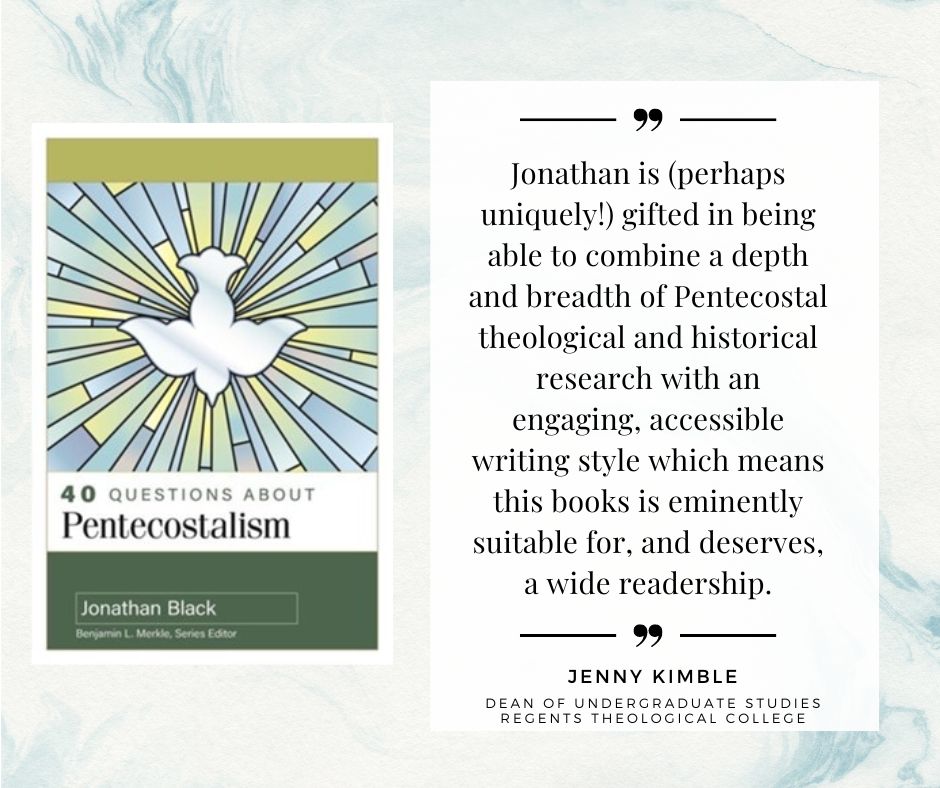My Newest Book is Out Today
My new book, 40 Questions About Pentecostalism, launches today. (As it’s published in America, it might possibly be a few more weeks before copies arrive in the UK.) I really love the 40 Questions series which Benjamin L. Merkle edits for Kregel Academic. Over the years, I’ve read and recommended many of the volumes, and so I’m thrilled to have now contributed a volume to the series as well.
My hope and prayer is that the book will be of benefit both to Pentecostals and non-Pentecostals alike. For Pentecostals, the book will help us see where we’ve come from and why we believe what we believe. For non-Pentecostals, I hope the book will help clear up misconceptions, demonstrate what Pentecostals and other Evangelical Christians have in common, and sweep away some mistaken stereotypes.
You’ll find some chapters on the historical origins of Pentecostalism, looking at the Welsh Revival, Topeka, Azusa Street, Mukti, Sunderland, Norway, and a few other places. Then there are some chapters on the Pentecostal perspective on central doctrines of the Christian faith such as the Trinity, Christ, the Bible, the Atonement, and Salvation. You'll find lots of focus on distinctive Pentecostal beliefs like the Baptism in the Holy Spirit, and the Gifts of the Spirit, as well as healing and suffering. Finally, there are some chapters on the church, mission, worship, and the sacraments.You can read the first two chapters — “What is Pentecostalism?” and “What were the precursors to Pentecostalism?” — here. There are also excerpts on Jesus and on Healing and the Atonement on the Kregel Academic blog.
There isn’t really another book like this one. It’s carefully researched, but it addresses the actual beliefs of real Pentecostals (rather than the discussions of Pentecostal academics, which can, unfortunately, sometimes be focused on rather different topics). It actually looks at things like the Authority of Scripture, the Trinity, Jesus, salvation, the Baptism in the Holy Spirit, prophecy, and speaking in tongues. And it draws on statements of faith and writings of Pentecostals all over the world. I really hope that this book will be an encouragement and help to Pentecostals, and a book which helps other Evangelicals to better understand Pentecostals, and our commitment to the Gospel and to the Scriptures.I really hope that you’ll enjoy the book. And if you benefit from it, please consider leaving a review on Amazon or Goodreads (or both — reviews like that really do help other people find good books), and tell other people who might benefit from it too!









